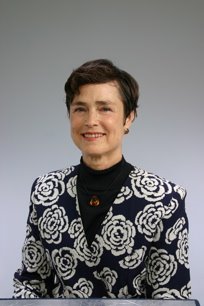



ダスティンーさん、ミホさん、おめでとうございます。
私は 彼らを 見て 万葉集の人丸を 思いました。人丸は 旅に といても 妻を 思います。
新婚のカップル と 私は 人生の両端にいます。
新郎新婦 (しんろうしんぷ) は とても 愛しあっています。
彼らは日本語と英語ができます。
ダスティンーさん と 私は よく アメリアへ行きます
アメリカは 遠くありません。 家族も 近いところにいます。 ダスティンさんは 私の従兄弟の息子ですから はとこ です。
私が 日本に 来たので、 ダスティンーくんは お母さんと 妹さんと 姉さん いっしょう に横浜に来ました。 私は 若いころの彼 を 思い出します。 ハンサムな、 がっきを 弾いている人です。私は彼と血がつながっていると思いました。私も ピアノ を 弾きます。
彼らの子供は混血です。例えば、 今日ここにいるダスティンーくんの 姪(めい)も混血です。
おめでとうございます。
[Translation into English from original Japanese:]
Dustin and Miho, congratulations.
You are like seaweed.
In the Thousand Leaves collection, poet Hito Maru on a trip far from home recalled his wife sleeping by him to the sinuous waving of seaweed.
You newlyweds are at the opposite end of life from me.
You surely love each other. You share two languages as well, Japanese and English.
Dustin, like me, often visits his homeland of the United States. The U.S. is not very far. Our families are close, too. Dustin is my cousin's son, therefore my first cousin, once removed.
Family ties are strong.
When I came to Japan, Dustin visited me in Yokohama with his mother and younger sister and elder sister. I recall that youth, handsome and playing music. I recognized the kinship. I also play piano.
Children are a mixture. For example, today Dustin’s sister attends the wedding with her baby daughter.
Congratulations.



